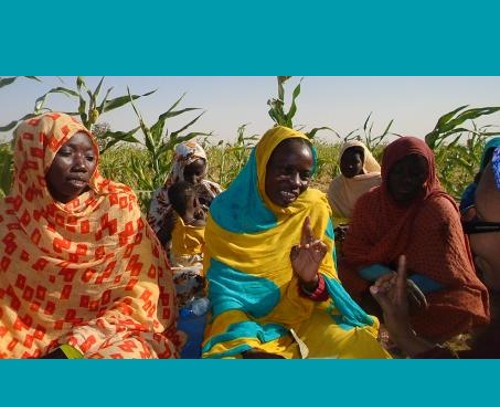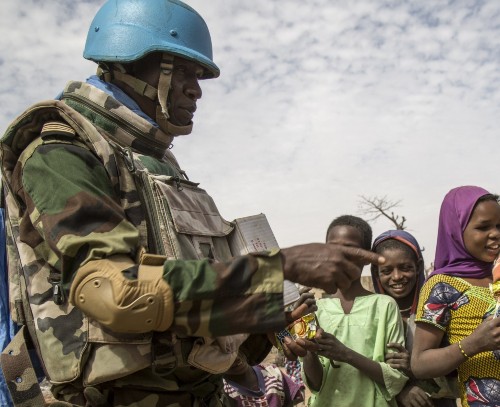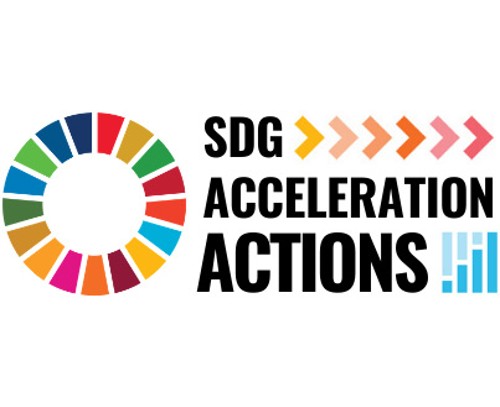- English
- French
AFRICA OPPORTUNITY AND ISSUES-BASED COALITIONS (OIBC)

The Africa Regional Collaborative Platform is comprised of six Opportunity and Issues-Based Coalitions (OIBCs) clustered around cross-cutting policy issues and three inter-agency Task Forces established in response to the recommendations of the report of the Secretary General of the United Nations, entitled “Shifting the management paradigm in the United Nations: implementing a new management architecture for improved effectiveness and strengthened accountability” (A/72/492/Add.2). Serving as the main vehicles for the substantive work of the Platform, the OIBCs pool UN system-wide expertise in an agile and timely manner to respond to changing regional and country needs. They are demand-driven and results-oriented, avoiding both siloed approaches and overlaps.

OIBC1
Strengthened Integrated Data and Statistical Systems for Sustainable Development and Africa We Want
Driven by the UN SG’s recommendation # 4 on strengthening the data ecosystem in Africa and the imperative to design and deliver a ONE UN National Statistical Capacity building Programme, OIBC - I is working in áreas related to all the SDGs. The Co-convenors of this coalition (UNECA & UNFPA) are working with several UN agencies and stakeholders, and building a network of experts to connect and share knowledge, in a dynamic Community of Practice.

OIBC2
Ensuring effective and efficient macroeconomic management and accelerated inclusive, economic transformation and diversification
OIBC 2 focuses on supporting African Union member states on the AFCFTA implementation strategies, debt management, and COVID-19 response and recovery. The Co-convenors of this coalition (UNCTAD, UNDP & ECA) are working with several UN agencies and partners in areas related to SDG 1,3,8,9, 12 & 17, to accelerate inclusive socioeconomic transformation and diversification in Africa, and building a network of experts to connect and share knowledge in a Community of Practice (CoP).

OIBC3
Education, innovation, digitalization, and youth
OIBC 3 focuses on promoting the use of new technologies and digital solutions for transformational education, youth and women empowerment, and well-being. The Co-convenors of this coalition (UNESCO, UNFPA & ILO) are working with several UN agencies and partners in areas related to SDG 1, 3, 4, 5, 8, 9 & 10, and building a network of experts to connect and share knowledge in a Community of Practice (CoP).

OIBC4
Fostering Climate Action and Resilience
OIBC 4 focuses on fostering climate action and resilience including loss and damage adaptation, food systems & food security. The Co-convenors of this coalition (UNEP, FAO, UNDP & UNECA), are working with several UN agencies and partners in areas related to SDG 1, 2, 3, 6, 7, 11, 12, 13, 14, 15 & 17, and building a network for experts to connect and share knowledge in a Community of Practice (CoP).

OIBC5
Towards Peace, Security, the Respect of Human Rights, and Forced displacement
OIBC 5 focuses on Strengthening capacity and capabilities in conflict prevention and addressing the root causes of conflict for a more comprehensive, inclusive, and effective interventions towards development, through a decrease in violent conflict and an achievement of sustaining peace. The Co-convenors of this coalition (UNODC, UNOAU, UNDP, OHCHR & IOM) are working with several UN agencies and partners in areas related to SDGs 3, 16 & 17, and building a network of experts to connect and share knowledge in a Community of Practice (CoP).

OIBC6
Sub-Regional Initiatives and Strategies
OIBC 6 is a cross-cutting coalition to support the work of the SRSGs/SEs and UNCTs by providing an on-demand framework to act on cross-pillar collaboration between SRSGs/SEs working on critical political and related strategies on one hand, and RCP Regional Directors of the UNDS on the other. The objective is to spotlight cross-pillar work of the UN in Africa by bridging political, peace, security, and development streams in sub-regions where such SE/SRSGs are operating. The Co-convenor of this coalition, UN Special Envoys (SEs) and Special Representatives of the Secretary-General (SRSGs) and Head of UNOAU is working with several UN agencies on sub-regional and thematic issues in Africa.

Task Force 2
knowledge Management
Driven by the UN SG’s recommendation # 2 on institutionalizing and strengthening knowledge management, Task Force 2 focuses on developing, and enhancing visibility and accessibility to the African UN regional knowledge assets. This includes the African UN Knowledge Management Hub, the Africa UN Hub on COVID-19, the Africa UN Regional Expertise Repository, and a Community of Practice (CoP) platform for the OIBCs. The Co-convenors of this task force (ECA & ILO) are working with several participating UN agencies and building a Community of Practice (CoP) to connect and share innovative knowledge.

Task Force 3
Enhancing transparency and results-based management at the regional level
Driven by the UN SG’s recommendation # 2 on institutionalizing and strengthening knowledge management, the objective of task force #2 is to develop, update, enhance visibility and accessibility to the UN African regional knowledge assets. This include: i.) The Africa KM Hub on COVID-19; ii.) An Africa Knowledge Management Hub; iii.) A Regional Expertise repository; iv.) A Community of Practice (CoP) platform, which enables the group to connect, discuss and share innovative knowledge on its areas of work. The Co-convenors of the task force are ECA and ILO.

Task Force 5
Regional Efficiency Agenda
Driven by the Un SG’s Recommendation # 5, this special task force focuses on finalising the Regional Business Operations Strategy (R-BOS) towards enhancing the quality, efficiency, and effectiveness of Regional Operations. Co-convenors of the task Force (WFP & UNAIDS) are working with several UN agencies and the Regional Operations Management Team (R-OMT), ensuring analytical and advisory roles in developing the R-BOS, coordinating with UNCTs and their Operations Management Teams (OMTs) in identifying programmatic needs and operations support.

